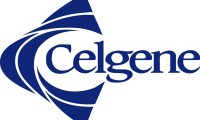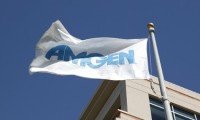-
Celgene to Acquire Impact Biomedicines, Adding Fedratinib to Its Pipeline of Novel Therapies for Hematologic Malignancies
- Source: finance.yahoo
- 510
- January 12, 2018
-
Celgene Corporation and bluebird bio Announce bb2121 Anti-BCMA CAR-T Cell Therapy Has Been Granted Breakthrough Therapy Designation
- Source: ansa.it
- 590
- November 17, 2017
-
Bay Area’s ARMO BioSciences Banks $67 Million From Big Name Investors Like Celgene (CELG) And Google (GOOG)
- Source: biospace
- 528
- September 13, 2017
-
Biogen completes $1.15bn HI-Bio acquisition to expand immunology presence
- Source: drugdu
- 87
- July 5, 2024
-
Flagship-Founded Microbiome Company Evelo Biosciences Throws in the Towel
- Source: drugdu
- 172
- November 25, 2023
-
analysts
- Source: drugdu
- 118
- September 11, 2023
-
BMS sought bogus patents, filed sham lawsuits and more to protect Pomalyst, lawsuit says
- Source: drugdu
- 204
- September 9, 2023
-
BMS Accused by HMO of Patent Fraud to Allegedly Sustain Pomalyst Monopoly
- Source: drugdu
- 183
- September 9, 2023
-
Clinics ration supplies as cancer drug shortages proliferate
- Source: drugdu
- 101
- July 7, 2023
-
Amgen reports positive results for Otezla in psoriatic arthritis
- Source: drugdu
- 178
- June 2, 2023
your submission has already been received.
OK
Subscribe
Please enter a valid Email address!
Submit
The most relevant industry news & insight will be sent to you every two weeks.













